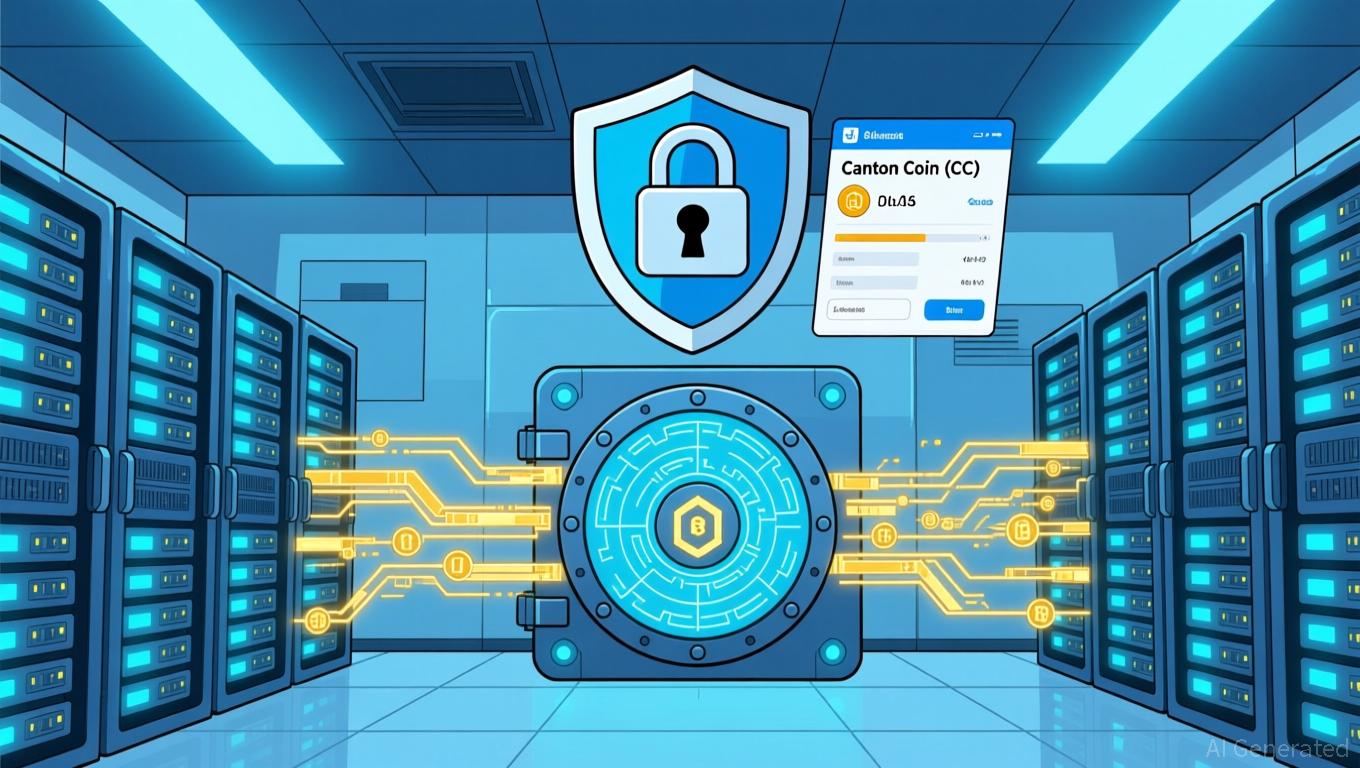The COAI Token Controversy: Exposing Weaknesses in DeFi and Charting a Course for Safeguarding Investors
- COAI token's 2025 collapse wiped $116.8M, exposing DeFi's fragility due to governance flaws, regulatory gaps, and technical vulnerabilities. - Smart contract failures and concentrated ownership in ten wallets amplified manipulation risks, eroding trust in C3.ai's leadership. - Regulatory ambiguity, like the U.S. CLARITY Act's vague definitions, hindered institutional investment and enabled scams in Southeast Asia. - Experts urge real-time audits, diversification into AI hardware, and global frameworks li
Technical and Governance Failures
The downfall of the COAI token stemmed from significant issues in its smart contract design and instability among its leadership.
Security audits of smart contracts, which are vital for DeFi safety, were either inadequate or disregarded. Specialists now stress the importance of obligatory independent audits by organizations such as CertiK or OpenZeppelin to catch vulnerabilities before launch. The lack of these protections in the COAI incident enabled attackers to exploit technical gaps, a trend also seen in other DeFi breaches in 2025, including the
Regulatory Ambiguity and Global Enforcement Gaps
The COAI controversy also revealed shortcomings in current regulatory systems. The U.S. CLARITY Act,
Southeast Asia has emerged as a major center for crypto-related fraud,
Investor Protection: A Call for Proactive Measures
Following the COAI collapse, there is a growing demand from investors for more robust protections. Bitget’s experts suggest a comprehensive strategy:
1. Real-Time Auditing:
2. Diversification Strategies: Shifting investments into less correlated fields, like AI hardware or quantum computing, to reduce exposure to sector-specific downturns.
3. Hedging Instruments: Employing inverse crypto ETFs or options as a buffer against market swings.
4. Regulatory Advocacy:
Nevertheless, regulatory advancements are inconsistent. For example, the IRS’s updated DeFi reporting requirements are being contested over privacy issues, while the SEC’s move to classify stablecoins as securities has imposed significant compliance challenges on smaller platforms.
Conclusion
The COAI token incident encapsulates the wider issues facing DeFi: intricate technology, unstable governance, and fragmented regulation. For the sector to progress, it is essential for all parties to emphasize openness, enforce strict due diligence, and push for unified global regulations. As Bitget’s research
Disclaimer: The content of this article solely reflects the author's opinion and does not represent the platform in any capacity. This article is not intended to serve as a reference for making investment decisions.
You may also like
Polkadot Latest Updates: ECB Raises Concerns: Cryptocurrency and Stock Market Downturns Resemble Dot-Com Bubble Threats
- ECB warns U.S. equity/crypto corrections threaten stability, urging central banks to retain rate-cut flexibility amid market volatility. - JPMorgan links crypto ETF outflows to retail investor behavior, noting $4B November sales contrast with $96B equity ETF inflows. - U.S. Treasury downplays recession risks, citing 2026 growth optimism despite shutdown impacts and services-driven inflation. - MSCI highlights tech valuation risks akin to dot-com era, while DeFi faces $12B liquidity crisis with 95% capita

Novartis Increases 2030 Growth Projections Despite Analysts' Concerns About Patent Threats
- Novartis raised 2030 sales growth targets to 5-6% annually, driven by high peak sales expectations for oncology drugs Kisqali and Scemblix. - CEO Vas Narasimhan highlighted eight de-risked drugs with $3-10B peak potential, but analysts warned of patent expirations and uncertain pipeline progress beyond 2030. - Shares rose 0.5% post-announcement, while Exact Sciences surged 17% on its $105/share acquisition by Abbott and Samsung Biologics saw a 71% valuation re-rating after spin-off. - J.P. Morgan caution

Institutional Blockchain Integration: Blockdaemon and 21shares Bridge Traditional Finance and Web3 through the Canton Network
- Blockdaemon's Institutional Vault now supports Canton Coin, enabling secure custody and tokenization for institutions on the Canton Network. - 21shares launched a Canton Coin ETP on Euronext, offering investors institutional-grade exposure to privacy-focused blockchain innovation. - Canton Network's architecture, backed by J.P. Morgan and Goldman Sachs , facilitates secure, interoperable transactions while maintaining regulatory compliance. - Partnerships between blockchain infrastructure providers and t

LINK Price Moves to $13.90 as Market Tracks Tight Short-Term Structure
